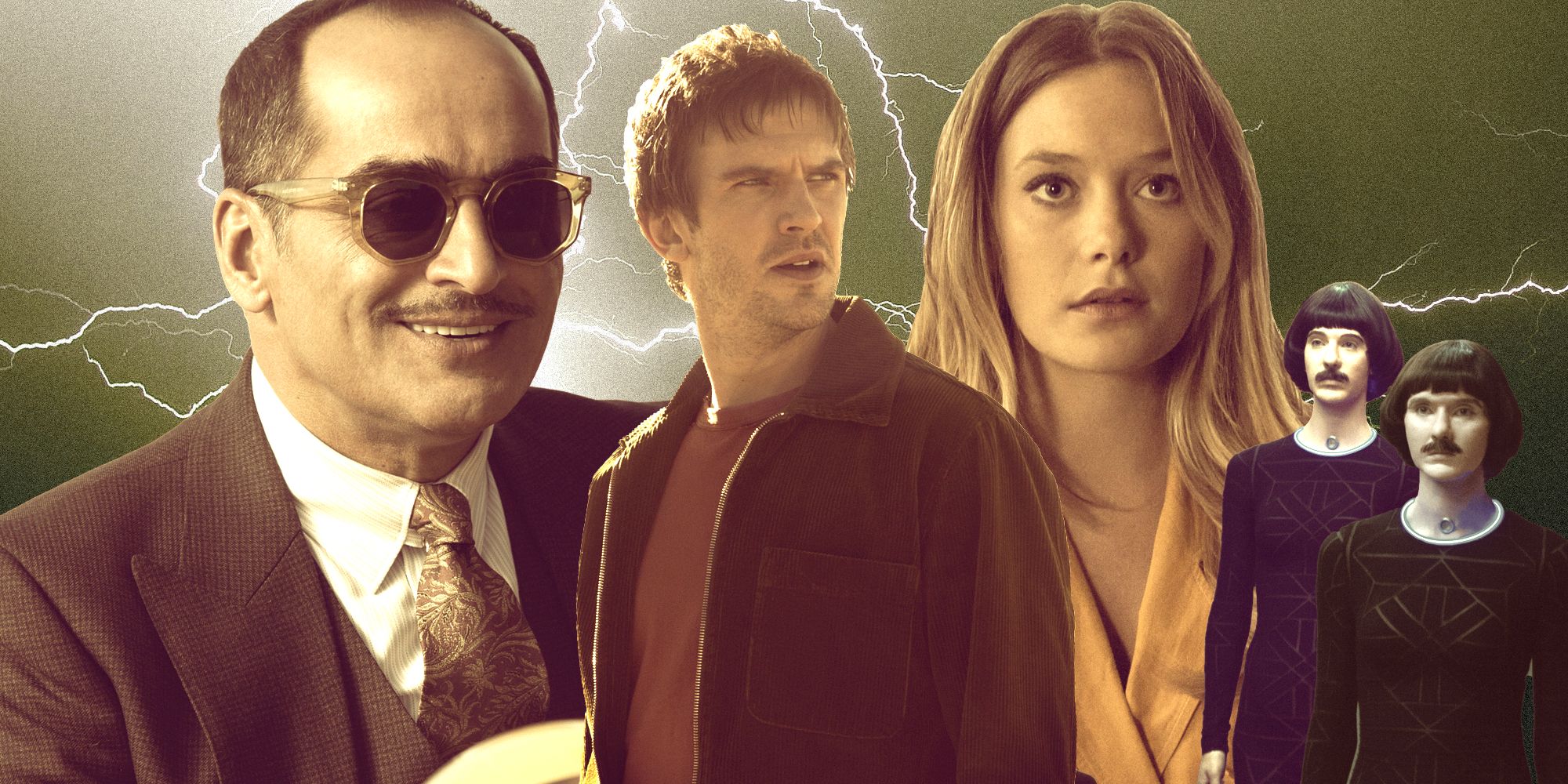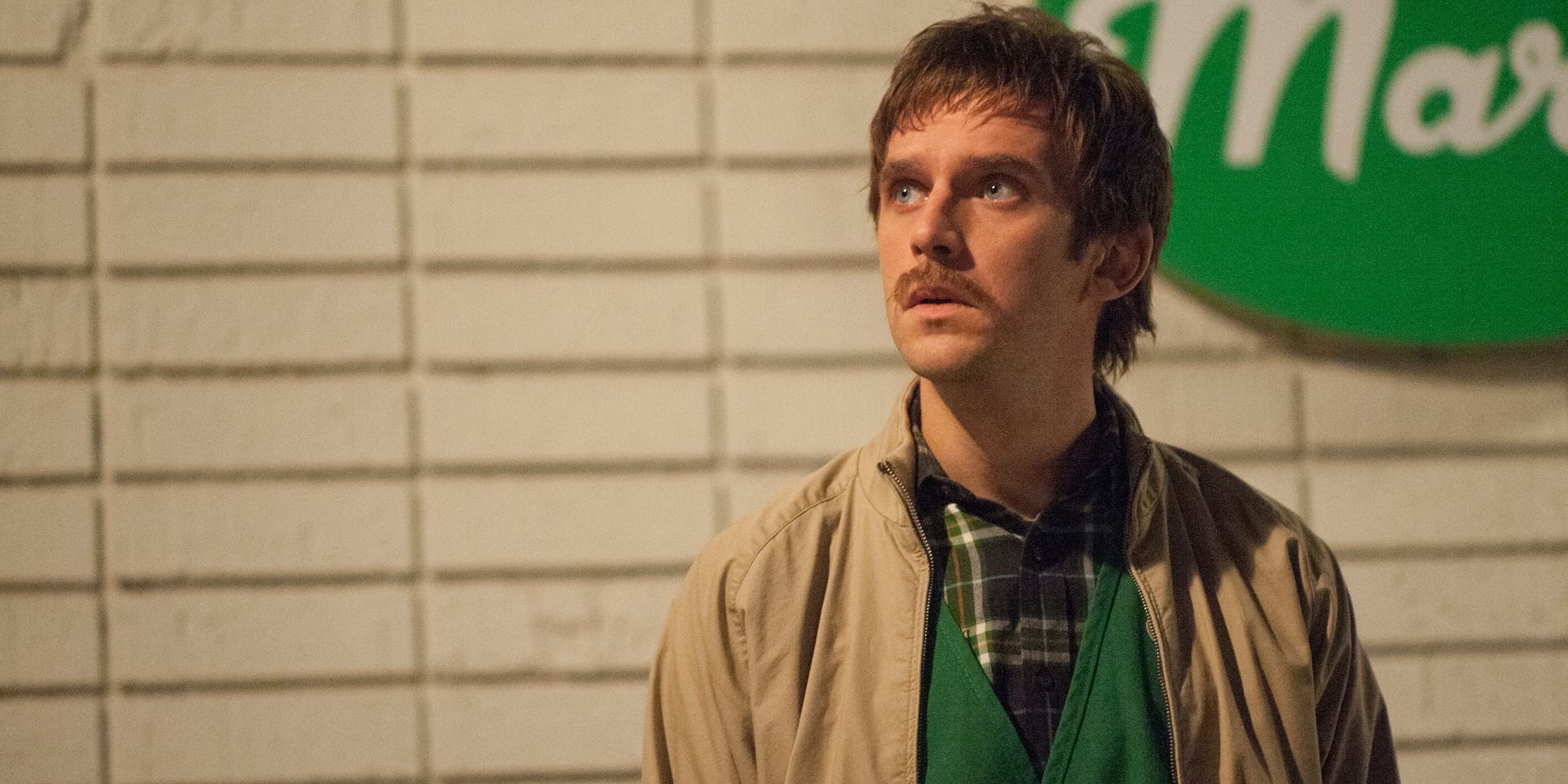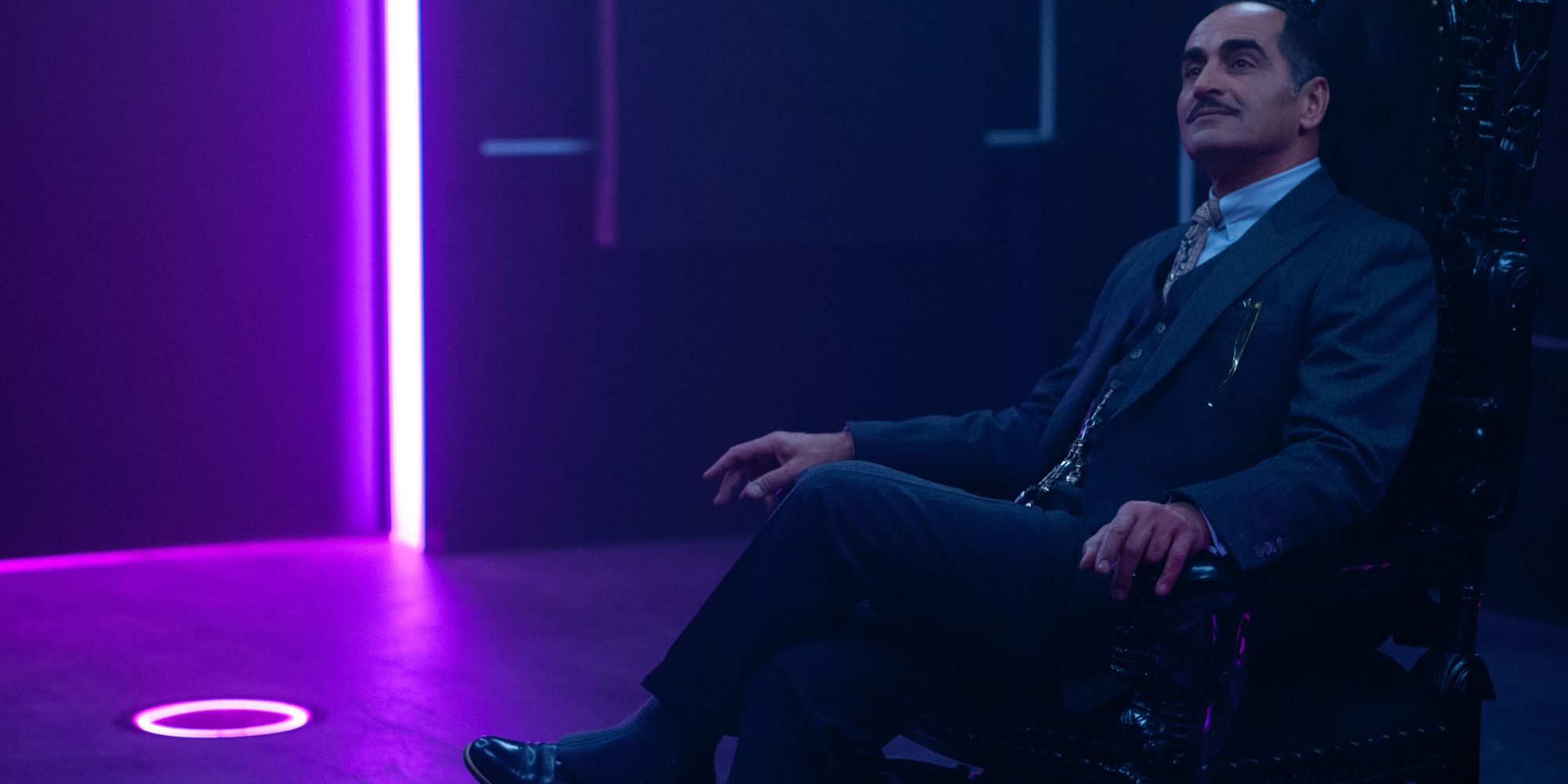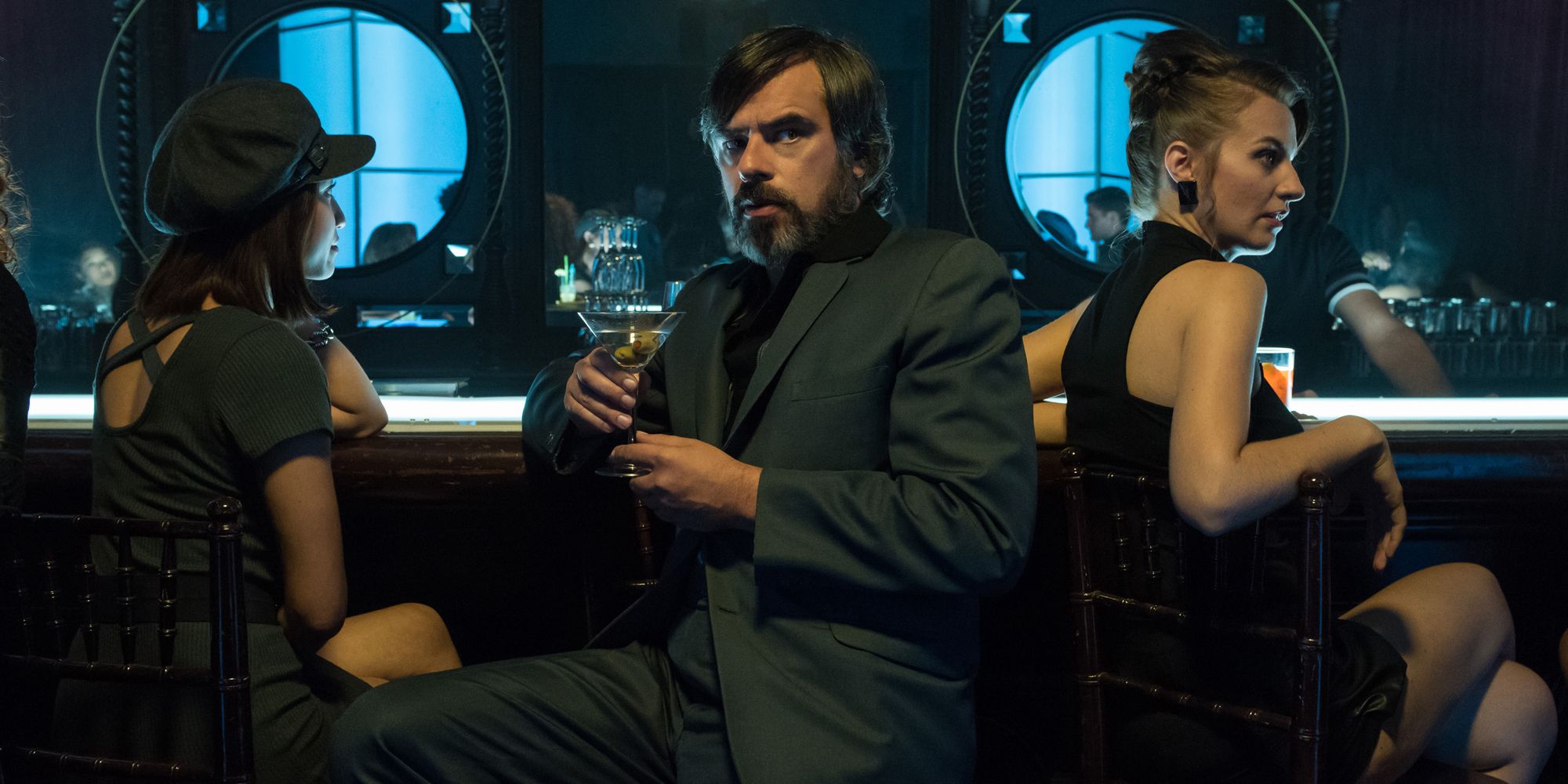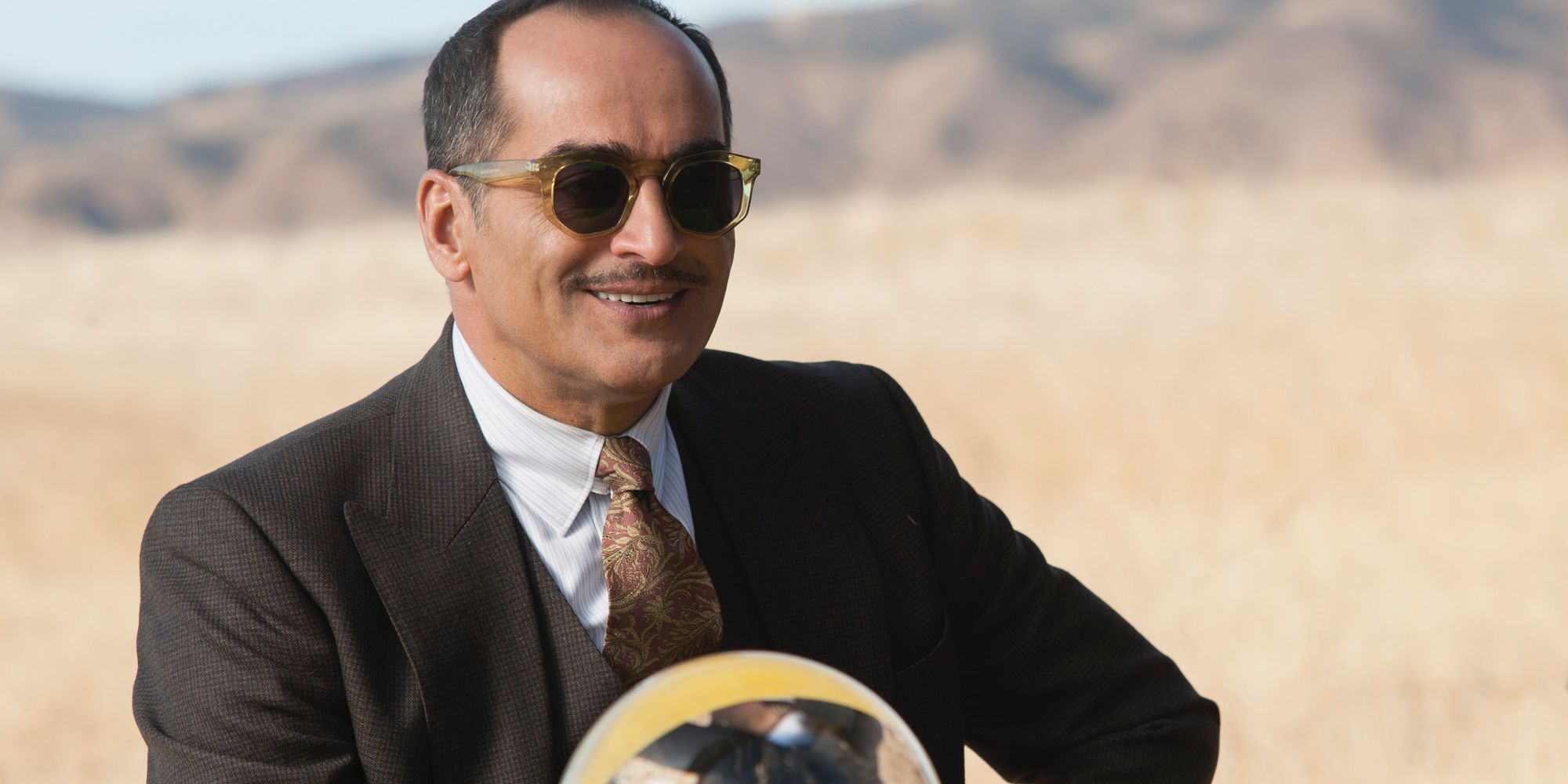It’s fair to say that at some point during its second season, Legion, like many of its viewers, lost the thread a little. That’s may be somewhat difficult to tell, given the series’ penchant for blurring the lines of reality and its fondness for eschewing the conventions of the typical television narrative. Nevertheless, at a certain point in its sophomore season, FX’s mutant mind-bender became something of a ponderous affair, focusing more on its lush visuals and psychedelic digressions (Ptonomy’s digital transcendence, anyone?) than on the story at hand.
The series has already been renewed for a third season, one that, given where he season 2 finale leave things, has the potential to rewrite the narrative and re-position David Haller (Dan Stevens) as a more ambiguous character. Is he mentally ill or isn’t he? Is he the destroyer of the world or is Amahl Farouk (Navid Negahban) pulling a fast one on Division 3? These are compelling questions for the series to answer in the episodes to come, but considering how season 2 diverged from a fairly straightforward plot to focus on asides that, while fascinating on the surface, offered little in terms of character development or plot progression, it’s reasonable to have some reservations that watching Division 3 chase down a powered-up David, who’s on the run with blue-eyed Lenny (Aubrey Plaza), will offer any more forward momentum than season 2 did.
Related: What to Expect from Legion Season 3
Obviously, viewers’ mileage will vary when it comes to what Legion does and doesn’t do well. There are likely just a many people hoping the series will digress further into its fantastical asides as there are those who would like to know who Amahl Farouk is beyond his mesmerizing voice and penchant for delivering enigmatic lines in French. Still, while Legion season 2 felt a bit at times like it was deliberately aiming to steal the "What The Hell Is Even Happening?" crown from Twin Peaks season 2, there are a few things that worked, and plenty that didn’t.
What Worked:
More Visually Inventive Than Season 1
Legion earned its fan base in part because it is gorgeous and looks unlike anything on television (or in theaters for that matter) flying the Marvel banner. The series established its unique look early on with a pilot episode directed by series creator Noah Hawley, and from there it seemed as though anything was possible. Season 2 and its creative departures from the main storyline certainly proved that to be true, as episode after episode, Legion put such a premium on its distinctive style that you can more easily recall each chapter for some impressive shot or visual trick than for the story it told.
There are problems inherent in that sort of overemphasis on style and Legion season 2 is full of them, but it doesn’t entirely remove the pleasure of watching Legion purely for its visual flourishes. ‘Chapter 14,’ in particular, is a perfect example. An episode that diverges into a multitude of potential alternate lives lived by David, all of which appear to unfolding concurrently thanks to the way the episode was shot and edited. The hour looks and feels like nothing else on television.
The same can be said, to a lesser degree, for the line-drawn psychic fisticuffs engaged in by David and Farouk in the season finale. It’s a unique way for the series to illustrate a conflict that would otherwise have devolved into CGI madness. Questions of style over substance remain, but as a visual spectacle, Legion remains a marvel.
Digressions Were Impressive If Inessential
Season 2 featured several episodes devoted to anything other than the plot at hand. David’s potential alternate lives, a trip inside Syd’s life history, and an hour devoted to the slow revelation that Lenny’s new body is that of David’s sister, Amy (Katie Aselton), were all given huge chunks of the season’s overall story. These episodes were told with the kind of visual confidence viewers have come to expect from Legion, and while they pumped the brakes on the season’s overarching plot, they were, at the very least, engaging, if not entirely necessary.
‘Chapter 14’ impressed as far as the caliber of its strangeness was concerned. It also afforded Stevens his best performance on the series to date. Similarly, ‘Chapter 12’ served as a fascinating deep dive into Syd’s psyche and the extent to which David shares, or wants to share, an emotional connection with her. Meanwhile, ‘Chapter 13’ delivered quite a shock, not only because of what happens to Amy, but the degree to which Legion was able to effectively (albeit briefly) reposition itself in the realm of body horror.
Though these chapters didn’t progress the story in any meaningful way, and mostly failed to ignite a discussion online, they were visually impressive and inventive in how they captured the otherworldly, mystifying vibe of the series. They work as fascinating standalone episodes, but just think how they’d have been received if Hawley and Co. had found a way to make them more essential to the overall plot of the season.
Season 3 Has A Lot Of Potential
It’s a troubling thing to chase a disappointing season of television with the promise of a creative turnaround but nevertheless here we are. Legion season 2 didn’t deliver the “race” to recover Farouk’s body and to save the world as promised by the premiere. As such, viewers are left hoping that the promise of another, season with redefined character dynamics will be the ticket the series needs.
There are a number of potentially exciting avenues to explore and questions to answer following the events of ‘Chapter 19’, not the least of which is: Does David use The Who’s ‘Behind Blue Eyes’ to hype himself up for every psychic battle or just this one? On a more serious note, Farouk's ability to successfully adjust the narrative and re-position David as the villain and him as Division 3’s only hope makes for a sizable Gordian knot for Legion season 3 to untangle.
There's plenty of work to be done to redefine who David is, where he actually falls on the moral spectrum, and whether or not he’s as mentally ill as Syd and the rest of Division 3 are convinced he is. That should give fans something to look forward to.
What Didn’t Work:
It Squandered An Exciting Storyline
Some of the storytelling in Legion season 2 was akin to distracted driving. That is, the plot was definitely on its way to a particular destination, but the show’s appetite for circuitous asides found its eyes and attention anywhere but on the road ahead. Part of that was just Legion putting a premium on style over substance, and part of it seems to be that the road from point A to point B was shorter than Hawley and Co. originally anticipated. What was initially billed as a 10-episode race to find Farouk’s body before he did, eventually became so sidetracked that it nearly lost the plot altogether.
Legion is, above all else, uninterested in the ordinary, so it’s no surprise that what initially appeared to be a straightforward arc for the season turned out to be anything but. Yet it’s still disappointing how ponderous the season felt for most of its run, and how hard it seemed the series needed to push itself in order to defy convention.
Perhaps part of the problem was the additional time the series had to fill. Legion season 1 consisted of eight episodes. That felt just about right, as even then there was an hour or two that could have been cut without the season being made to feel lesser as a result. Season 2, by comparison, clocked in at 10 episodes, before it was announced (well into the season’s run, mind you) that there would be an additional episode, bringing the total to 11. At a time when most series would do well to think about shorter seasons and shorter episodes, Legion’s push for more felt ill-advised and ultimately highlighted concerns about the season’s pacing and its predilection toward lengthy departures over narrative momentum.
Characters Began To Feel Muddled
Whether it was Lenny being reborn in Amy’s body or Syd being both David’s present-day girlfriend and a one-armed messenger from the future, it was hard to get a bead who they really were and what their connection to David and overall plot of the season was meant to be. Some fared better than others, as Cary (Bill Irwin) and Kerry (Amber Midthunder) were given a chance to spend more time together, while others, like Melanie (Jean Smart) seemingly spent the entire season trapped in a smoky haze, lamenting her relationship with Oliver (Jemaine Clement), who also came off muddled as a result of the multiple identities he needed to portray.
Multiple personalities and fractured psyches are definitely in Legion’s wheelhouse, but when everyone is doubling up on identities or experiencing an inordinate amount of confusion, there’s nothing and no one to stand in contrast to the conflict playing out in David’s mind. In the end, the result further alienated the viewers from the characters. That's a huge risk considering how much damage the idea that David is really the story’s villain — whether it be real or a trick — does to the emotional core of the show.
In all, the characters in season 1 felt much more distinct. Here they began to feel muddled, trapped in the haze of a slow-moving plot.
The Shadow King Remains Indistinct
Navid Negahban infused Farouk with an inscrutable quality that felt appropriate given the character’s immense power and the fact that he’d spent the last 30 years hiding away in another man’s mind while his body was trapped in a giant suppository somewhere beneath the earth. Additionally Negahban was particularly adept at making the most of Farouk’s mystifying dialogue, which consisted mainly of bouncing back and forth between utterances in French and English. But through it all, though he was given physical form beyond that of a yellow-eyed monstrosity lurking in the recesses of David’s mind, Amahl Farouk, or the Shadow King, was no more developed as a character than Admiral Fukuyama was.
It feels like the show ultimately wasted a great character actor and performance that was clearly up for more than what appeared on screen. By all accounts, Farouk will continue to plague David in the recently announced season 3, so there’s hope that the character will not only have more to do, but will reveal more about himself to become the compelling villain (or savior) the show’s been promising he is. Like so much of what transpired in the past 11 episodes that puts a lot on season 3's shoulders. Finding out whether or not the next batch of episodes will be up to the task may be reason enough to watch.
Next: Legion Season 2 Finale Explained: The True Villain Revealed
Legion will return for season 3 in 2019 on FX.

